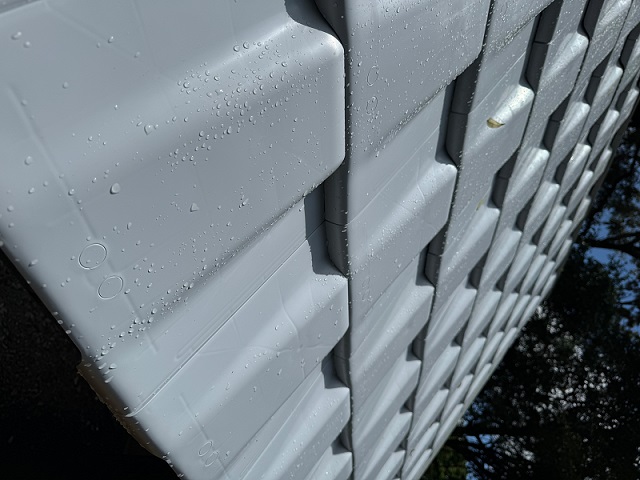Takazuri and BASF have collaborated to create smart building solutions that are built to last in Eastern Africa.
With a focus on building climate resilience with sustainable products, these solutions incorporate Climatile™ technology from Takazuri, which utilizes locally collected and converted post-consumer materials.
Furthermore, additive packages from BASF have been specifically tailored to suit the unique weather conditions of the region.
This collaboration aims to provide long-term, environmentally friendly solutions that promote economic development in Africa and make a positive impact on both the construction industry and the local communities with a potential to scale to other regions.
“Sustainability is at the core of our business. Our commitment is reflected in our products, which are designed for high performance and multi-functionality while utilizing locally collected and converted waste from urban settings, and soon, from ocean plastics collected off the Kenyan coast,” explains Maria Schlesinger, Co-Founder and CEO, Takazuri.
Africa’s population is expected to double by 2050 according to the African Development Bank Group. Rapid population growth and increasing urbanization are driving an increase in plastic waste and great demand in various construction sectors.
Takazuri’s motivation is to provide an affordable climate resilience solution by utilizing local resources and establishing partnerships in various sectors including housing, commercial, healthcare, education and humanitarian relief.
Climatile is a roofing and cladding solution that acts as a cool roof/wall to improve indoor temperatures with enhanced insulation and improved solar reflectance and emittance. It also provides a safe rainwater-harvesting surface without corrosion.
Designed to work as a system, the Climatile is coupled with a smart clipping mechanism, that allows for the integration of functional accessories to its surface such as ultra-light frameless solar panels and biophilic components.
In this way, the Climatile offers an “upgradable” solution, thereby equipping buildings to provide the most essential resources for climate resilience.
For several years, Takazuri has been actively working to enhance Kenya’s leadership in climate action and green growth, helping build an enabling environment for sustainable and regenerative construction.
With innovative products that are projected to scale across the region and continent, Takazuri is paving the way for a more resilient and eco-friendly future in Africa’s construction industry.
“Throughout the development of our technology, BASF has been an invaluable partner, assisting us in areas such as process optimization, thermal stabilization and enhancing the service life of the post-consumer recyclates.
BASF’s expertise has been especially crucial in creating additive packages tailored to the harsh weather conditions in this region,” adds Maria.
Alongside BASF, Takazuri has strategically partnered with Gabriel Chemie, a leading masterbatch producer in Europe, who provides customized Combi-Batch containing colors and stabilizers to ease the dispersion and homogeneity in the polymer matrix during the conversion of the tile.
Plastics are typically stabilized against thermal and photo-oxidation to meet the stability requirements for specific processing steps, product life cycles and specific applications. Most stabilizers are used up during the first product life cycle, resulting in changes in rheological and mechanical properties.
Additive stabilizers are therefore not only important for the stabilization of virgin plastics but are also essential ingredients to improve the quality of post-consumer recyclates to support sustainable applications such as Climatile. Restabilization with suitable antioxidants and an appropriate light stabilizer was vital to fulfill the long-lasting service life of Climatile technology with leak-free roofing and affordability.
“Our team discussed extensively with the Takazuri team to understand the technical requirements, specifications and market positioning targeted by Climatile.
On this basis it was possible to optimally design the most suitable additive system to meet the challenges of using post-consumer recycled materials for long-term outdoor exposure,” said Bettina Sobotka, Head of Global Marketing and Development, Plastic Additives, BASF.
“We sincerely hope that the construction sector and local communities in East Africa can benefit from this collaboration, thereby fostering economic growth.”
Also Read
Two declarations inked in China to boost construction sector in SA
Completion of South Africa’s major renewable energy project set for 2026

